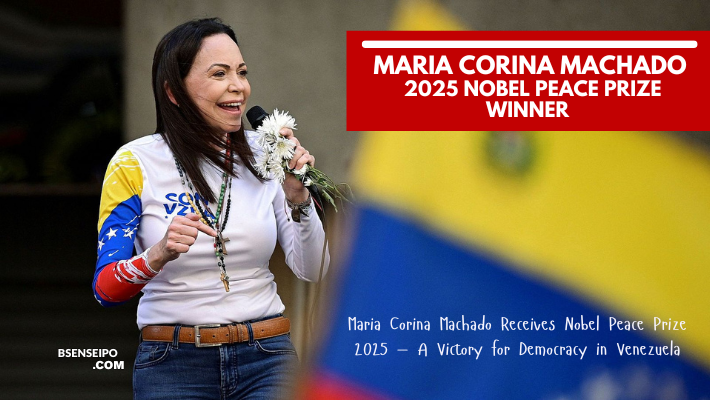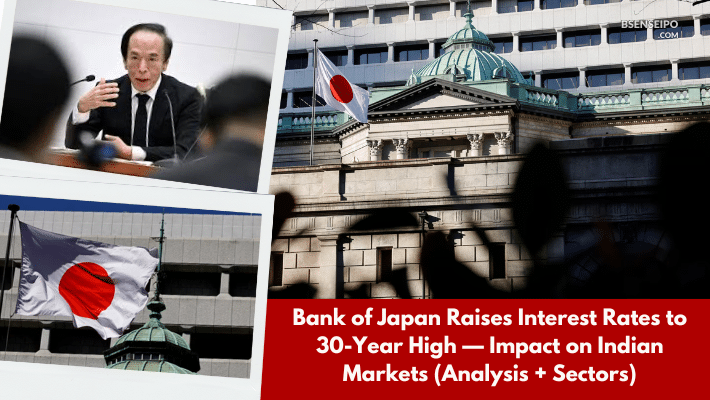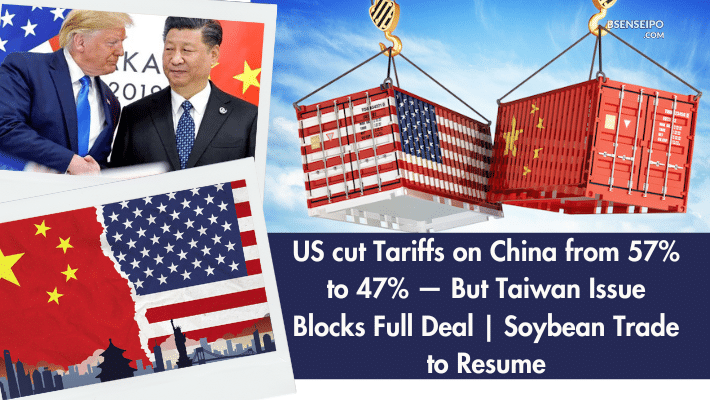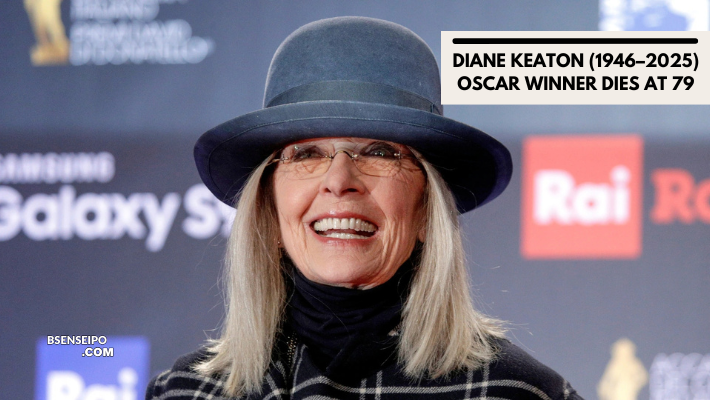(Photo Credit- RTVE.es)
Maria Corina Machado Receives Nobel Peace Prize 2025 — A Victory for Democracy in Venezuela
In October 2025, the Norwegian Nobel Committee announced that Maria Corina Machado had been awarded the Nobel Peace Prize “for her tireless work promoting democratic rights for the people of Venezuela and for her struggle to achieve a just and peaceful transition from dictatorship to democracy.”
This recognition places Machado among global figures celebrated for defending freedom, human rights, and democratic institutions under threat. But who is she — and what led to this moment?
Early Life, Education & Background
- Maria Corina Machado Parisca was born on 7 October 1967 in Caracas, Venezuela.
- By training, she is an industrial engineer, having studied at Andrés Bello Catholic University and further education in administration. (Wikipedia)
- She comes from a family with a business background; her father was a notable businessman in Venezuela’s steel industry.
Her relatively privileged upbringing has occasionally drawn criticism from political opponents who depict her as disconnected from Venezuelan socioeconomic struggles. Still, Machado has positioned herself as a voice for democratic reform and human rights across Venezuela’s political divide.
Political & Activist Career
Early activism & civic work
- Machado’s political involvement began (or became more visible) in the early 2000s when she co-founded Súmate, a Venezuelan civil society group that monitored elections and promoted transparency.
- She also later founded and coordinated the party Vente Venezuela, pushing a pro-democracy, pro-market reform agenda.
Parliamentary role
- From 2011 to 2014, Machado served as a member of Venezuela’s National Assembly for the state of Miranda.
- Her term ended under controversial circumstances: in 2014, the government removed her from her seat, citing constitutional provisions that critics claim were politically motivated.
Opposition and candidacy attempts
- In 2023, Machado won the opposition’s primary with wide margins, positioning her to run in the 2024 presidential election.
- However, the Venezuelan government’s Comptroller and Supreme Court barred her from holding public office (citing alleged administrative irregularities), effectively disqualifying her from running.
- After disqualification, she endorsed Edmundo González Urrutia as the opposition’s alternate candidate.
- Following that, due to increasing political pressure and threats, Machado went into hiding in 2024 to avoid arrest or worse consequences.
Why the Nobel Peace Prize?
The Nobel Committee’s citation and press release emphasize:
- Machado’s persistent advocacy for democratic rights in Venezuela, especially at a time when the country is under authoritarian pressures. (NobelPrize.org)
- Her efforts “promoting democratic rights for the people of Venezuela and for her struggle to achieve a just and peaceful transition from dictatorship to democracy.”
- The committee also noted that she has endured serious threats to her safety and has been forced to live in hiding, yet chose to remain in her country.
- They considered her a courageous example of civilian resistance in Latin America in recent years. (NobelPrize.org)
The Nobel Peace Prize will be formally presented on 10 December 2025 in Oslo, Norway.
Challenges, Criticism & Impact
Challenges & repression
- Machado has faced sustained pressure from the Venezuelan government: arrests, surveillance, suppression of her political party’s activity, and legal maneuvers to block her candidacy.
- Many of her advisors, collaborators, and fellow opposition figures have been detained, exiled, or barred from political roles.
- Her decision to go into hiding underscores the dangerous climate for opposition leaders under Maduro’s regime.
Criticism & political discourse
- Some critics question her ideological leanings, especially her advocacy for liberal economic reforms and privatizations, arguing that such policies could deepen inequality if not accompanied by strong social safety nets.
- Others debate whether her elite background undermines her ability to represent broader portions of Venezuela’s impoverished population.
Symbolic & practical impact
- The Nobel brings global attention and legitimacy to Venezuela’s democratic struggle, potentially increasing diplomatic pressure on Maduro’s government.
- Machado’s recognition may embolden domestic opposition movements, civil society organizations, and activists who have been operating under threat.
- It also places a spotlight on human rights abuses, electoral manipulation, and institutional erosion in Venezuela.
Conclusion
Maria Corina Machado’s journey is emblematic of the complex and perilous path faced by opposition leaders in authoritarian environments. The 2025 Nobel Peace Prize recognizes not only her personal courage and sacrifice, but also the broader struggle for democracy in Latin America and around the world.
Her award sends a message: even under harsh repression, voices for democratic change matter—and can resonate globally. Whether her recognition will translate into concrete shifts within Venezuela remains to be seen, but the spotlight she now carries is considerable.




